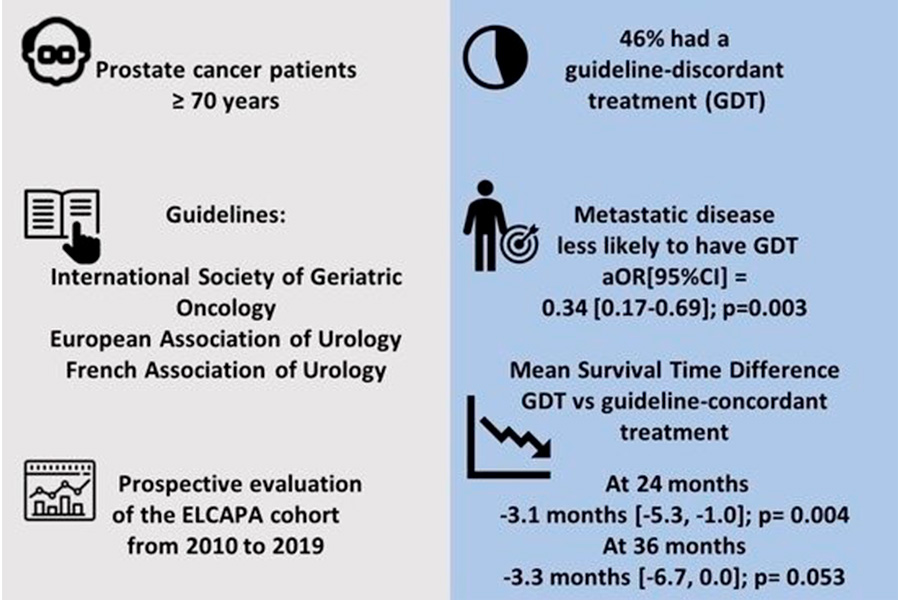- Télécharger en PDF
-
Partager cette page
- Télécharger en PDF
Vous êtes ici :
- Recherche,
Adherence to Treatment Guidelines and Associated Survival in Older Patients with Prostate Cancer : A Prospective Multicentre Cohort Study
An article by Adolfo González Serrano (EUR-LIVE's laureate), Florence Canouï-Poitrine & Thomas Barnay (Heads of the EUR-LIVE's pillar Health Economics & Public Health) published in the open-access journal Cancers.

Abstract
The guidelines on prostate cancer treatment in older men recommend evaluating the patient’s underlying health status before treatment selection. We aimed to evaluate the frequency of a guideline–discordant treatment (GDT), identify factors associated with GDT, and assess the relationship between GDT and overall survival. We studied patients with prostate cancer aged 70 or older included in the ELCAPA cohort between 2010 and 2019. Multivariable logistic regression assessed GDT-associated factors. The restricted mean survival time (RMST) assessed the 24- and 36-month OS using stabilized inverse probability of treatment weighting of propensity scores. We included 356 patients (median age: 81 years), and 164 (46%) received a GDT (95% confidence interval (CI) = (41–51%)). Patients with metastases were less likely to receive a GDT (adjusted odds ratio (95% CI) = 0.34 (0.17–0.69); p = 0.003). After weighting, the RMST at 24 months was shorter in the GDT group (13.9 months, vs. 17 months for compliant treatments; difference (95% CI): −3.1 months (−5.3, −1.0); p = 0.004). RMST at 36 months was 18.5 months, vs. 21.8 months (difference: −3.3 months (−6.7, 0.0); p = 0.053). GDT is common in older patients with prostate cancer and especially those with non-metastatic disease. GDT was associated with worse survival, independently of health status and tumor characteristics.
HTML Version: https://www.mdpi.com/2072-6694/13/18/4694/htm
PDF Version: https://www.mdpi.com/2072-6694/13/18/4694/pdf
- Télécharger en PDF
-
Partager cette page
- Télécharger en PDF

